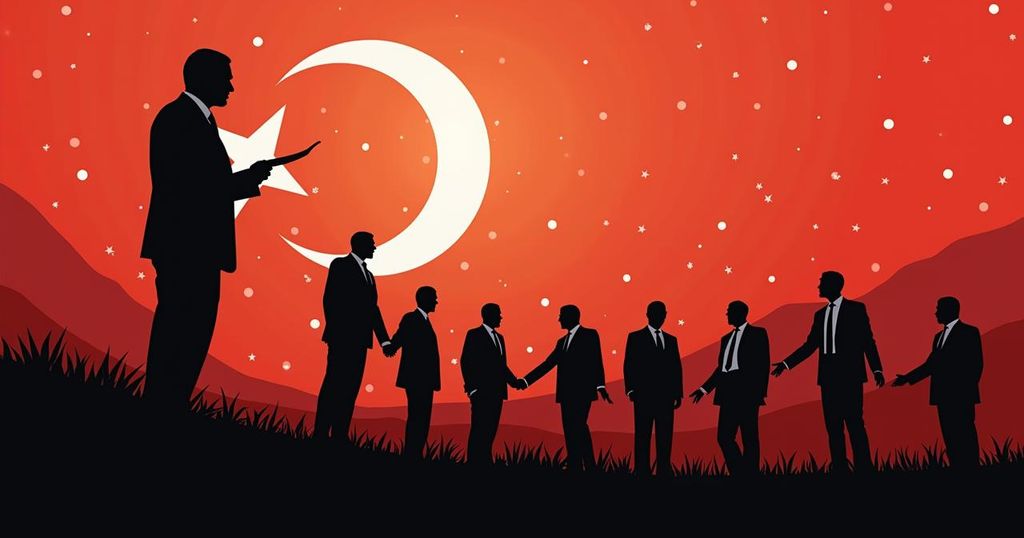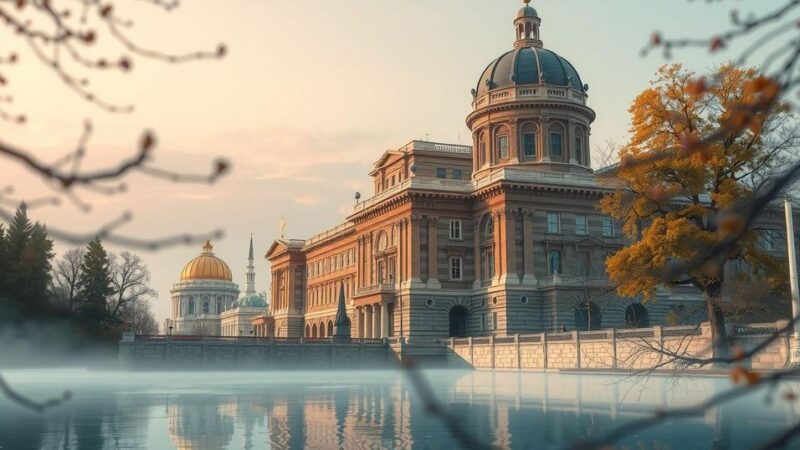Tunisian President Kais Saied seeks re-election amid criticisms of authoritarianism and political repression. The election features limited candidates after significant legal maneuvers led to the imprisonment of key opponents. Critics argue that the election functions more as a referendum on Saied’s leadership, with widespread protests emerging against his government and a clear retreat from democratic norms since his rise to power in 2019.
In the impending presidential election in Tunisia, President Kais Saied is poised to seek re-election amidst a political landscape marred by controversy. Critically viewed as an autocrat, he is nonetheless supported by many who view him as a savior. The electoral commission has limited the presidential race to Saied and one other candidate, Zouhair Maghzaoui, despite the aspirations of numerous politicians to contest against him. The other candidate, Ayachi Zammel, has been incarcerated for 12 years on charges of falsifying documents, just days preceding the election, yet his name will still grace the ballot. Since his election in 2019, President Saied has instituted significant changes, including the dissolution of parliament and amendments to the constitution, consolidating power in his hands. Experts have opined that his governance reflects a manipulation of the political atmosphere leading to a noncompetitive electoral environment. Campaign activities have been virtually nonexistent, with the president’s image dominating campaign posters throughout the nation. Tunisia’s political context is particularly poignant, given its historical role as a pioneer of democratic movements in the Arab world following the Arab Spring. However, the current political atmosphere is rife with unrest as several opposition members have faced arrests, and numerous potential candidates have been sidelined due to legal pressures. Human rights organizations have raised concerns over the authoritarian nature of the government’s actions, asserting that Saied’s regime is significantly undermining the gains achieved in democratic freedoms since 2011. Although Saied once promised a rejuvenated Tunisia, he has faced critiques for his failure to address critical economic issues, with unemployment rates stagnating at approximately 16%. This has led many young Tunisians to seek opportunities abroad, further complicating the nation’s political and economic landscape.
The backdrop of Tunisia’s current electoral climate is rooted in significant socio-political shifts since the Arab Spring that commenced in late 2010, which catalyzed a wave of uprisings across the Arab world. Tunisia emerged from this upheaval as a beacon of hope for democracy; however, the political environment has oscillated dramatically since the election of Kais Saied in 2019. Initially celebrated for his promises of reform and representation, Saied’s administration has since been characterized by the centralization of power and a series of actions that have led to widespread criticism regarding human rights and democracy. As Tunisia approaches its third presidential election post-revolution, the absence of genuine political competition and the troubling trend of incarcerating political opponents have cast a shadow over its democratic process. The opposition party, Ennahda, and various human rights watchdogs have pointed to these developments as indicative of a retreat from democratic norms, intensifying public discontent with Saied’s rule and prompting protests against perceived authoritarianism.
In summary, President Kais Saied’s quest for re-election in Tunisia is overshadowed by serious concerns regarding democratic integrity and human rights. The significant restrictions imposed on political competition, including the incarceration of potential candidates and the suppression of dissent, underscore a troubling trajectory away from democracy. As the nation prepares for an election that appears to be a referendum on Saied’s leadership, the lack of effective opposition and the prevailing sentiment of apathy among the electorate suggest a complex future for Tunisia’s democratic aspirations, one that is increasingly fraught with challenges.
Original Source: www.bbc.com







